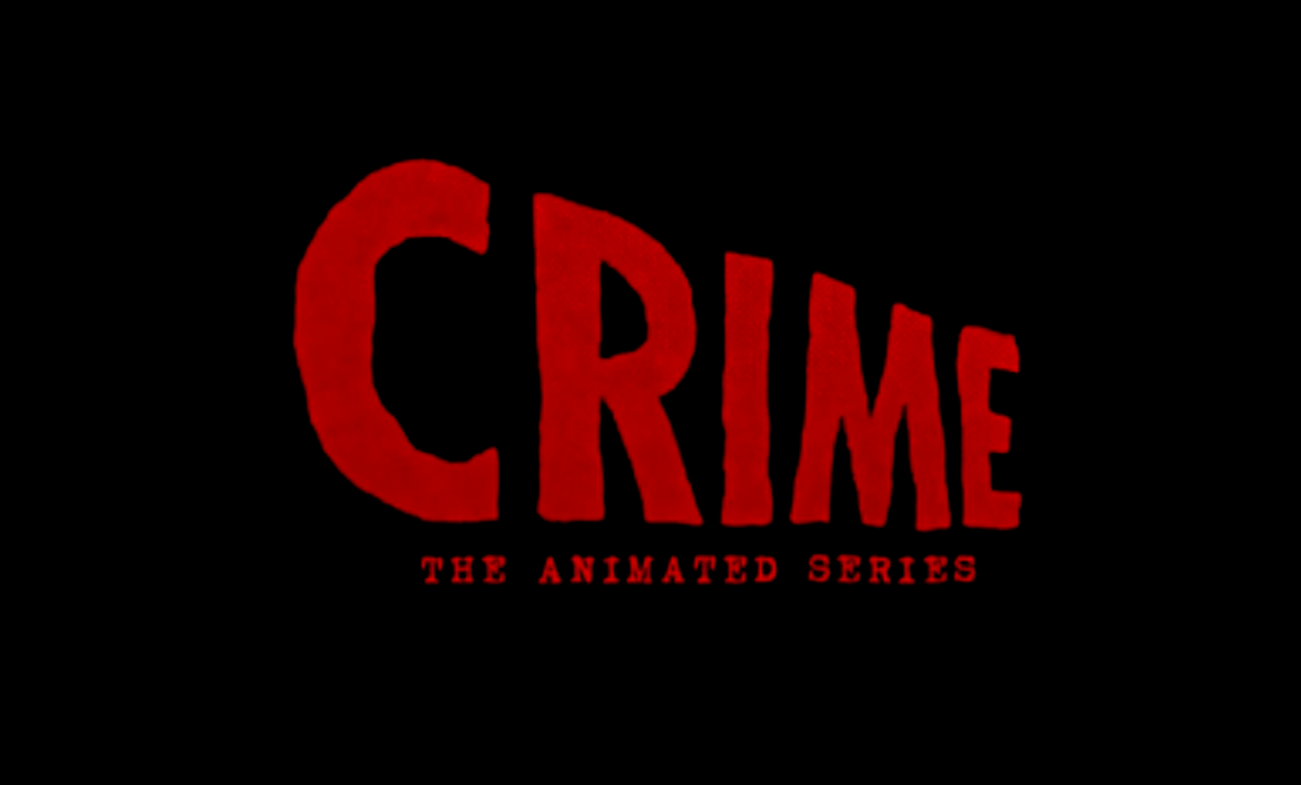Alix Lambert is a multi-hyphenate artist whose work around crime has registered in film, literature and theater worlds. Her 2008 book “Crime” — based on interviews about crime that Lambert conducted around the country — has so far inspired two theater pieces: the Civilians’ “Crime, USA,” performed at Joe’s Pub in NYC in 2010, and the subsequent “Crime, USA: Hartford,” performed in Connecticut in 2012.
As part of her crime investigation, Lambert spent time at the Anthropology Research Facility — or the Body Farm — dedicated to the study of human decomposition. Lambert’s interview with a forensic scientist, who talked openly about how her brother murdered their adoptive parents, was performed by the Civilians at their death-themed cabaret at Joe’s Pub in 2012. Listen to that interview being performed here:
Now, Lambert has paired with animator Sam Chou to create “Crime: The Animated Series,” based on some of her extensive interviews. You can see that animation embedded in this post. The Civilians’ Ian Daniel spoke with Lambert about her experiences interviewing and adapting her work for different media.
IAN DANIEL: So you didn’t know anyone in Hartford? How did you find people to interview and get them to talk about crime?
ALIX LAMBERT: I kind of meandered around meeting people. I’ll meet one person, and they’ll introduce me to another person. For example, Jordan Mahome, one of the actors in “Crime, USA: Hartford,” introduced me to Marcus McGee. Marcus is schoolteacher, not a criminal, but he grew up in the projects and knew a lot of people and introduced me to them. I visited the school Marcus teaches at. He’s got a really tough job there. There are kids who come from homes with parents with drug problems, kids with malnutrition, kids who are pregnant after being abused, kids who don’t know how to read in ninth grade, tenth grade. You know, it’s a hugely difficult job. Marcus introduced us to his students, and he also introduced us to people he knew from the projects, people who were criminals in various different ways and had stories to tell and trusted him enough to talk to me. That’s the trail I always like to follow, partly because I think the trust is big and partly because I wasn’t looking for the ten most famous stories in Hartford. I’m always looking for a variety of voices.
If you’re in a city and want to know who’s going to be aware of what’s going on criminally, going to a pawn shop or a boxing gym or a tattoo parlor can be productive. Park Street, for example, is one of the worst areas in Hartford. And I was introduced to a guy named Joe Bascetta by the people at Real Art Ways, and Joe has owned a tattoo parlor on Park Street for 30 years, which meant that he saw everything. He had all these amazing stories of what was going on Park Street from the 70s until now. So those are good places to start. It’s like dominoes, one thing leads to another, you know?
IAN: When you find someone potentially interesting, do you just approach them and say, “Hi, I’m working on this project, can I talk to you for a minute?” How do approach obtaining personal stories?
ALIX: Yeah. If there’s not someone introducing me, you start out with something like that, but with somebody like Joe at the tattoo parlor, who was somewhat resistant at first, I got lucky, because he had seen a documentary I made on tattooing in prisons. Tattoo artists tend to know that film. It just depends on who you’re trying to speak to, but people are generally open to being interviewed. People want to be heard. That’s my experience. People want to be heard.
I also always go and talk to crime reporters, if they’ll talk to me.They are really good resources, because they report on crime in the area, so they’ll usually tell you what’s going on where and what the cases are that they’ve been reporting on most recently.
IAN: You just kind of meandered around Hartford looking for interesting people?
ALIX: Yeah. I’m interested in the city’s criminal scene, so I visited the tattoo parlors and the boxing gyms and the pawn shops. But Hartford is insurance. It’s all insurance companies. And white collar crime is a whole different thing. There was a guy at Occupy Hartford, which was going on at the time, who talked about insurance in a very articulate way, and then he turned out to be completely insane. He started to talk about how he was friends with Kennedy and Muhammad Ali and totally went off the rails, and I was like “Oh, hmm. I wonder whether any of that was true.” I included him in “Crime, USA: Hartford” anyway, because I really liked that experience of finding the first guy to make sense about the insurance companies and then realizing that everything else he said was problematic. He’s an unreliable narrator.
IAN: What was the genesis of “Crime: the Animated Series?”
ALIX: I got a call from Sam Chou. He runs an animation studio in Toronto, and he said, “I would really like to animate ‘Crime.’” And I said, “That’s funny because I also would like to.”
IAN: What was the process like, turning the interviews into animations?
ALIX: We spent a long time talking about the challenges of condensing the interviews. These were going to be two-minute animations, and the interviews are much longer. Cutting the interviews down at all was very difficult for me when we were working the book, so to further cut them down was even harder, largely because I didn’t want to lose the more seemingly mundane aspects of stories and what they illuminate about us as people. People think that I’m going to like anything sensational and over-the-top, when actually that’s what I try and skirt around when I’m working on crime. I’m not really interested in that, but I think there’s an instinct to go for the most dramatic when you’re trying to smoosh something into two minutes. I mean, obviously there’s huge drama in some guy getting shot on the Fourth of July, but it was really important to me to have every episode include some aspect of the person’s story that is not that. That’s not like, “Okay, and then we have this shoot off and I get shot.” In that episode, I’d rather hear him talking about finding out that the shooter wasn’t the right kind of shooter, that he was going to die at the hands of somebody he didn’t respect.
I really like Marcus McGee’s story because it shares the real-life side of crime in the same way. The crime wasn’t even the central part of his original interview, but you know that it happened to him. We were just talking about him having his car stolen and how shitty it was to be treated by the police that way. That is super interesting to me, because that is everyday life for a schoolteacher who is not white.
IAN: Exactly. That’s what struck me about them, that you chose not to sensationalize the situation. The drama was building into something potentially violent, but the actual climax was sort of flat in our typical way of thinking about storytelling. It was about him, well, waiting.
ALIX: But that waiting is violence of a different form. You know? The cops aren’t going to come when something really terrible could happen because they’re eating pizza down the street? That’s an aggressive act for a whole huge part of this community.
IAN: Tell me about the process of transforming interviews into works of art in different media. What changes? Or, what’s exposed in different forms?
ALIX: You reach different audiences, which is great. Somebody who will go on YouTube and watch a two minute animation is not necessarily going to read my crime book or go to the theater, and podcasts also bring in a different audience. I think if you have the material and you want different people to absorb it you have to think about who they are and how they process information.
IAN: What have you learned through the interviewing and dramatizing processes? Did you develop any grand insights about crime?
ALIX: I ended up having more questions than answers. I always end up with more questions than I started out with. Which is, I think, good, so, no. I don’t have any great insight into crime. It’s probably murkier than it was when I started. But not in a bad way. In a way that I think is the nature of really investigating something. It just gets bigger and bigger as you look closer and closer at it.
IAN: What’s the next phase of the project?
ALIX: In terms of theater, I’m working on “Crime: Brooklyn” and “Crime: London.” And they’ll be slightly different from the already existing theater pieces, like “Crime: Hartford,” in ways that I’m still kind of working out.
IAN: So you’ll do all of the interviews in Brooklyn and London?
ALIX: Yeah, but I’ll also draw on my previous work. I have interviews that I haven’t used yet that will work well for the Brooklyn play. I have interviews from London that are in the book that I think could work theatrically. It’s easy enough for me to continue to do interviews in Brooklyn. You never know if something is going to work out or not. You just try and do it.
I’m also working on a new documentary that has some crime elements to it. It’s called “Goodbye Fat Larry” and it’s about a murdered film director from the late 60s and early 70s whose archive I have access to. And my film “Mentor” was recently released on DVD and VOD.
IAN: You have a lot going on.
ALIX: People say that but then it’s like half the things you have going on don’t happen.
IAN: Yeah, you have 15 things in the pipeline…
ALIX: And then it’s like, “look, I did two things!” And you don’t mention the 13 that didn’t happen.
 Alix Lambert has directed and produced three feature length documentaries: “The Mark of Cain,” “Bayou Blue” (with David McMahon), and “Mentor,” as well as numerous shorts. She was a writer on the HBO shows “Deadwood” and “John from Cincinnati.” She has conceived, written and directed two short series for MOCA tv: “Crime: The Animated Series” and “Ambiance Man.” She is the author of “Crime” and “The Silencing,” as well as the creator of “Prison Zoo.”
Alix Lambert has directed and produced three feature length documentaries: “The Mark of Cain,” “Bayou Blue” (with David McMahon), and “Mentor,” as well as numerous shorts. She was a writer on the HBO shows “Deadwood” and “John from Cincinnati.” She has conceived, written and directed two short series for MOCA tv: “Crime: The Animated Series” and “Ambiance Man.” She is the author of “Crime” and “The Silencing,” as well as the creator of “Prison Zoo.”









